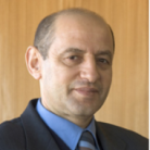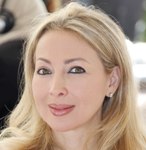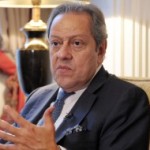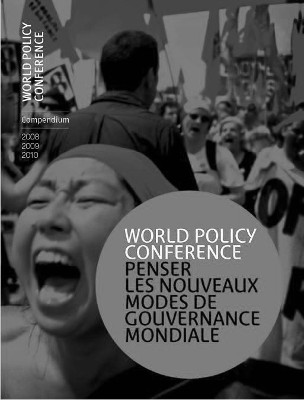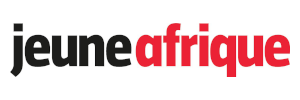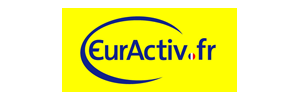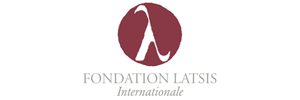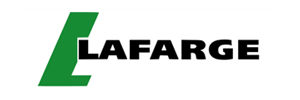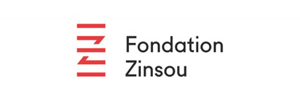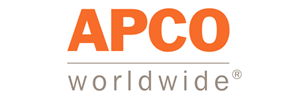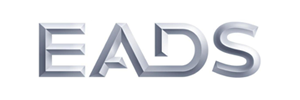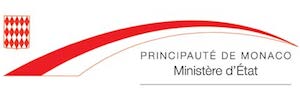President of the Moroccan Central Authority for the Prevention of Corruption. He developed an extensive experience (1974-1998) as a civil engineering consultant. In 1998, he joined the Caisse de dépôt et de gestion (CDG) which is the main financial public institution in Morocco and was nominated in 2006 Deputy Director-General. He is a civil engineer (graduated from Ecole nationale des ponts et chaussées, Paris, 1973), economist (University of Rabat, 1980) and MBA (ENPC, Paris, 2000).
Jean Abiteboul
President of GIIGNL (International Group of LNG Importers), non-executive Director of Tellurian Inc. (AMEX: TELL). Jean Abiteboul is the former President of Cheniere Supply and Marketing, a 100% subsidiary of Cheniere Energy Inc. (AMEX: LNG), a Houston based company specializing in liquefied natural gas importation and exportation, and senior consultant in the energy field. He joined Cheniere in 2006, after having held various positions within Gaz de France (now Engie), among which Executive Vice President for Supply, Trading & Marketing, President of Gaselys, International Executive Vice President as well as Advisor to the Chairman & CEO and Secretary of the Board of Directors. He graduated from the Ecole Centrale de Lyon.
Soumeya Abdelatif
Medical doctor, director of companies. First Vice President of the Robert Schuman Institute for Europe, former auditor of the Institute of Advanced Studies in National Defence (IHEDN) and of the Center of Diplomatic and Strategic Studies (CEDS).
Mounir Fakhri Abdel-Nour
Economist, Egyptian businessman and Member of Parliament, President of the company Hero Middle East, Secretary-General of the Neo-Wafd Party and member of the Egyptian National Council for Human Rights.
WPC Compendium
2013 Agenda
14:30 – 15:30
Opening session
H.S.H. Prince Albert II, Sovereign Prince of Monaco
Ali Babacan, Deputy Prime Minister of the Republic of Turkey
Thierry de Montbrial, President and founder of the WPC
15:30 – 17:00
Plenary session 1: “The state of the world economy and global governance”
Moderator: Nicolas Barré, Deputy Managing Director, Les Echos
Speakers: Henri de Castries, Chairman & CEO of AXA
Kemal Dervis, Vice President and Director of Global Economy and Development at the Brookings Institution and Senior Advisor at Sabanci University; former Minister of Economic Affairs of Turkey
Il SaKong, Chairman of the Institute for Global Economics; former Minister of Finance of the Republic of Korea
Jacob Frenkel, Chairman of JPMorgan Chase International and Chairman of the Board of Trustees of the Group of Thirty (G30)
Pascal Lamy, Honorary president of Notre Europe, former Director-General of the WTO
David de Rothschild, Group Chairman, Rothschild
17:00 – 17:45
Plenary session 2: with Mohammad Javad Zarif, Minister of Foreign Affairs of the Islamic Republic of Iran
17:00 – 19:15
Plenary session 3: “Middle East”
Moderator: Steven Erlanger, London Bureau Chief, New York Times
Speakers: Masood Ahmed, Director, Middle East and Central Asia Department, IMF
Renaud Girard, Journalist at Le Figaro, Editor at Questions Internationales
Elisabeth Guigou, President of the Committee on Foreign Affairs of the French National Assembly
Sergey Karaganov, Chairman of the Presidium of the non-governmental Council on Foreign and Defense Policy
Bassma Kodmani, Executive Director of the Arab Reform Initiative
Marwan Lahoud, Chief Strategy & Marketing Officer of EADS
Mona Makram-Ebeid, Egyptian Senator, Distinguished Lecturer at American University in Cairo
19:15
Welcome cocktail
20:00
Dinner debate with Herman Van Rompuy, President of the European Council
08:00 – 09:45
Plenary session 4: “Asia’s strengths and weaknesses”
Moderator: Michael Yeoh, Founder and CEO, Asian Strategy & Leadership Institute, Malaysia
Speakers: Bruno Lafont, Chairman & CEO of Lafarge
Mayankote Kelath Narayanan, Governor of West Bengal
Jin Roy Ryu, Chairman & CEO, Poongsan Group, Republic of Korea
Shotaro Oshima, Chairman, Institute for international Economic Studies (IIES) and Visiting Professor, Graduate School of Public Policy, University of Tokyo
Anatoly Torkunov, Rector of the Moscow State Institute of International Relations (MGIMO), member of the Russian Academy of Sciences
Yang Jiemian, Chairman, Council of Academic Affairs, Shanghai Institutes for International Studies
09:45 – 11:15
Plenary session 5: “The challenges of the cyberspace”
Speakers: Carl Bildt, Minister of Foreign Affairs of Sweden; former Prime Minister of Sweden
Chang Dae Whan, Chairman of Maekyung Media Group
Paul Hermelin, Chairnan & CEO of Capgemini
Meir Sheetrit, Member of the Knesset; former Minister of Intelligence Services; former member of the security cabinet, Israel
11:15 – 11:45
Coffee-break
11:45 – 13:00
Plenary session 6: “Whither the ‘European social model’?”
Moderator: Jim Hoagland, Contributing Editor, The Washington Post
Speakers: Joaquín Almunia, Vice-President and Commissioner for Competition, European Commission Yves Leterme, Deputy Secretary General, OECD
Jean Pisani-Ferry, General Commissioner for Policy Planning
Didier Reynders, Deputy Prime Minister and Minister of Foreign Affairs, Foreign Trade and European Affairs, Belgium
13:15 – 14:45
Lunch debate: “The future of diplomacy”
Hubert Védrine, Former French Minister of Foreign Affairs
15:00 – 16:15
Plenary session 7: “Destruction or metamorphosis of the legal order?”
Speakers: Stephen Breyer, Associate Justice of the Supreme Court of the United States
Mireille Delmas-Marty, Professor at the Collège de France
Lord Mance, Justice of the Supreme Court of the United Kingdom
Jean-Marc Sauvé, Head of the French Council of State
16:30 – 19:30
Parallel workshops
1. Energy and environment
Chair: Christophe de Margerie, Chairman & CEO of Total
Speakers: Jun Arima, Director General, JETRO London; Special Adviser for Global environmental Affairs, METI
André Caillé, Director of Junex, Canada
Maria van der Hoeven, Executive Director of the International Energy Agency (IEA)
William Ramsay, Senior Advisor of the Center for Energy, Ifri; former Deputy Executive Director, International Energy Agency (IEA)
Kevin Sara, Chairman and CEO of Nur Energie
2. The health and emerging risks
Chair: James D. Wolfensohn, 9th President of the World Bank
Speakers: Christian Bréchot, Director of the Institut Pasteur
Richard Cooper, Professor of International Economics at Harvard University
Daniel Daianu, member of the Romanian Academy; former Minister of Finance of Romania
Thomas Kirkwood, Associate Dean for Ageing, Institute for Ageing and Health Newcastle University
3. Food security
Chair: Mostafa Terrab, Chairman & CEO of OCP Group
Speakers: José Graziano da Silva, Director General of FAO
Christopher Delgado, Senior Fellow, World Resources Institute; former Economics and Policy Advisor & Practice Leader, Agriculture and Environmental Services, World Bank
Brent Habig, Regional Director for West and Southern Africa, TechnoServe
Marcos Jank, Executive Director, Brasil Foods (BRF) Global Public and Governmental affairs, Brazil
Jane Karuku, President, Alliance for a Green Revolution in Africa (AGRA)
Mahama Zoungrana, Minister of Agriculture and Food Security, Burkina Faso
4. Finance
Chair: Jean-Claude Trichet, former President of the ECB
Speakers: Marek Belka, President of the National Bank of Poland
Benoît Cœuré, member of the Executive Board of the European Central Bank
Jacob Frenkel, Chairman of JPMorgan Chase International and Chairman of the Board of Trustees of the Group of Thirty (G30)
Jeffry Frieden, Professor of government at Harvard University
Il SaKong, Chairman of the Institute for Global Economics; former Minister of Finance of the Republic of Korea
John Lipsky, Distinguished Visiting Scholar, International Economics Program, The Paul H. Nitze School of Advanced International Studies
20:00
Cocktail
20:30
Gala dinner with Laurent Fabius, Minister of Foreign Affairs of France
08:00 – 09:00
Reports from parallel workshops
09:00 – 10:00
Plenary session 8: “Towards a European Banking Union”
Moderator: Alessandro Merli, Frankfurt correspondent, Il Sole 24 Ore
Speakers: Benoît Coeuré, Member of the Executive Board, European Central Bank
Philipp Hildebrand, Vice Chairman, BlackRock; former Chairman of the Swiss National Bank (SNB)
Constantin von Oesterreich, Chairman of the Management Board of HSH Nordbank
10:00 – 10:45
Plenary session 9: with H.R.H. Prince Turki Al Faisal, Chairman of the King Faisal Center for Research and Islamic Studies (KFCRIS)
10:45 – 11:15
Coffee break
11:15 – 12:00
Plenary session 10: with Itamar Rabinovich, President of the Israel Institute, Distinguished Global Professor at New York University (NYU), Distinguished Fellow at the Brookings Institution and Professor Emeritus, Tel Aviv University
12:00 – 13:30
Plenary session 11: “Africa”
Moderator: Jean-Michel Severino, CEO, Investisseurs et Partenaires (I&P)
Speakers: Mo Ibrahim, Chair of the Mo Ibrahim Foundation; Founder and former Chairman of Celtel International
Jean-David Levitte, Distinguished Fellow, Brookings Institution
Titus Naikuni, Group Managing Director & Chief Executive of Kenya Airways
Qu Xing, President of the China Institute of International Studies (CIIS)
Mostafa Terrab, Chairman & CEO of OCP Group
Tidjane Thiam, Group Chief Executive, Prudential plc Lionel Zinsou, President, PAI Partners
13:30 – 15:15
Lunch debate with Pauline Marois, Prime Minister of Quebec
15:30 – 16:45
Plenary session 12: “Politics and religions”
Moderator: Pierre Morel, Director of the Pharos Observatory of cultural and religious pluralism Bartholomew 1st, Archbishop of Constantinople-New Rome and Ecumenical Patriarch
Speakers: Faisal Bin Muaammar, Secretary-General of the Vienna-based KAICIID Dialogue Centre
Mircea Geoana, Senator; former Minister of Foreign Affairs of Romania
David Rosen, International Director of Interreligious Affairs, American Jewish Committee (AJC)
Mohammed Sammak, Secretary-General of the National Committee for Christian-Muslim Dialogue
Marcelo Sanchez Sorondo, Chancellor, Pontifical Academy of Sciences and Pontifical Academy of Social Sciences
16:45 – 18:45
Plenary session 13: “General debate”
Moderator: Domique Moïsi, special advisor at Ifri
Speakers: Titus Corlatean, Minister of Foreign Affairs of Romania
Steven Erlanger, London Bureau Chief, New York Times
Jim Hoagland, Contributing Editor, The Washington Post
Yusuf Ziya Irbec, Member of the Turkish Parliament
Donald Johnston, Founding Partner, Heenan Blaikie; former Secretary-General of the Organisation for Economic Cooperation and Development (OECD)
Karl Kaiser, Harvard University; former Director of the German Council on Foreign Relations
Carlos Pérez Verdía, Head of the Private Office of the Minister of Foreign Affairs of Mexico
Igor Yurgens, Chairman of the Management Board of the Institute of Contemporary Development in Russia
18:45
Closing
19:30
Informal dinner
2013 Themes
Session 1. The state of the world economy and governance
During this session, eminent international figures from both the public and private sectors will discuss the state of the global economy at the end of 2013, focusing on its weaknesses, the improvements needed in short-term and structural economic policies, and major ongoing projects such as the TTIP and the TPP. They will also be invited to talk about the changes in governance bodies like the G20.
Session 2 & 3. Middle East
While the civil war continues to rage in syria and political instability reigns in the arab spring countries, the most interesting development in the Middle East over the last few months has been the overtures made by Iran following the election of President Rohani in June 2013. During these two sessions, the possibility of Iran rejoining the “international community” and the chances of gradually achieving greater unity in the Middle East will be explored by some of the key stakeholders in the region, as well as from an external perspective.
Session 4. Asia’s strengths and weaknesses
Asia is still driving the global economy, but its security systems are extremely vulnerable. Numerous territorial conflicts have the potential to trigger a serious incident at any time, and the danger that these conflicts will degenerate is even greater because of ancestral hostility and resentment over events that happened in the 20th century. There are still many questions and a great deal of uncertainty surrounding the Korean peninsula; the purpose of this session – which will be attended by people of various nationalities, representing the full range of political and economic issues at stake – is to better understand the challenges presented by this huge region, where much of 21st century history will be played out.
Session 5. The challenges of the cyberspace
This session will address the challenges of cyberspace from three perspectives:
- The technological aspects and their possible or probable impact on the economy, society and international competition (are we heading towards an american political-industrial monopoly or a balance of power between the United states and China, in what respect and with what consequences?);
- The american strategy in this area;
- Europe’s interests.
We will focus on one particularly important aspect of the current revolution: the future of the media, as seen by the head of a large press corporation in a middle power (Korea).
Session 6. Whither the ‘european social model’?”
People all over the old continent still see social protection as a fundamental part of european life, even if the old Welfare state concept and what it entails has been damaged by globalisation. In fact, there are several “social models” in europe and the Member states of the European Union (EU) have demonstrated unequal capacity for reform in this area. Under these circumstances, is it really possible, from a prospective point of view, to talk about a single european social model that would embody the EU’s identity over the long term, and without which the Union’s very existence would be at stake?
Lunch Debate on Saturday, 14th December: The future of diplomacy
The information and communication technology revolution is moving forward fast and while it has not naturally changed the fundamental role of human nature in negotiations, it has completely transformed the exercise and practice of diplomacy. Two people with a great deal of experience in this area – a former american Under-secretary of state who is now a Professor at Harvard and a former French Foreign Minister – will be discussing the future consequences of this.
Session 7. Destruction or metamorphosis of the legal order?
Globalisation has created such a high degree of interdependence that it seems to be affecting both the legitimacy and the efficiency of legal systems. Legitimacy is built upon the universalism of values, which is an integral part of instruments to protect human rights and combat crimes that threaten humanity (war crimes, crimes against humanity, genocide) and underlies the emergence of “global public goods”. As for the efficiency of legal systems, it is being undermined by the globalisation of flows (economic and financial flows, digital information flows), hazards (notably health and environmental hazards) and crime (terrorism, corruption and various types of trafficking, including human and organ trafficking).
In practice, interactions between legal systems are increasing. such interactions may be horizontal (distribution of standards, dialogue between judges) or vertical (internationalisation of standards, creation of supranational courts); they overturn traditional perspectives, which associate national legal systems with the state and the international legal system with an inter-state structure. Of course, the state is still a fundamental component of the legal system, but it seems to be subject to competition from non-state bodies such as international organisations, multinational companies, non-governmental organisations and, occasionally, scientific experts.
The effects of globalisation would be destructive if they were to:
- · dilute responsibilities by increasing the number of judicial and quasi-judicial players and bodies with competing remits;
- · challenge the principle of territoriality, bearing in mind that borders are sometimes transgressed by the extension of national jurisdiction (extraterritoriality), sometimes integrated into a complex system combining national and international jurisdictions (multi-territoriality) and sometimes neutralised by the dematerialisation of information;
- · weaken the principle of sovereignty, the independence of which is under threat.
Unless globalisation is regarded as the start of a three-dimensional metamorphosis:
- · from responsibility to “co-responsibility”, which would create a link between the exercise of global power by either state or non-state parties and the obligation to assume responsibility for the effects of this power;
- · from territoriality to an area that is geographically diverse but governed by the same standards, which would call for coordination and, in some cases, a harmonisation of the rules of jurisdiction;
- · from absolute sovereignty to “shared” sovereignty; perhaps a better term would be “inclusive” sovereignty, as it implies the inclusion of new powers rather than the exclusion of traditional powers, thus encompassing the solidarity generated by growing interdependence. In this case, the word “metamorphosis” reflects an evolutionary vision of the legal system and the hope that change will lead us from chaos to peace.
Session 8. Reports from parallel workshops
Session 9. Towards a european banking Union
The banking union project is a direct result of the eurozone crisis, which began in 2010 in the aftermath of the 2007-2008 financial crash in the United states. Many believe that the banking union is vital to the long-term future of the euro, but the project could be compromised by the reticence of some of the stakeholders. This subject will be addressed in depth during the finance workshop. However, it is also a very political subject, since it concerns the viability of the European Union itself. Therefore, it will also be discussed at a plenary session.
Session 10. Africa
This session, which has now become a tradition at the WPC, will focus on three major issues: changes in the internal governance of african states; economic trends in africa; the great Lakes regional crisis. Some of the debates will also address China’s african policy.
Session 11. Politics and religions
The relationship between politics and religion lies at the heart of world history, since any religion is also a source of collective identity, culture and ideology and therefore a factor in power politics. With the transformation or the collapse of Communist systems and of the secular ideologies that prevailed in the “third world” for a third of a century after the second World War, the instrumentalisation of religions is playing an increasingly preeminent role in the geopolitics of conflict. This subject will be addressed by representatives of the three monotheisms, who will focus in particular on religious institutions as an instrument of better global governance.
Session 12. general debate
Like every year, the final session will include several people who currently occupy an eminent position or have held such a position in the recent past. They will endeavour not only to learn something from the conference, but also to explore new avenues.
Jeune Afrique
Distributed in more than 80 countries and read weekly by nearly 800,000 people, Jeune Afrique offers objective coverage of African and international news, as well as thought-provoking analysis of the continent’s political and economic challenges. Jeune Afrique is edited by the Group Jeune Afrique. As the African continent’s leading specialized media company, it registers total sales of 25 million euros, with 130 contributors across 15 countries.
Euronews
Euronews covers international news 24h/7 worldwide. Composed of 13 editions and 400 journalists from more than 30 countries, Euronews is a unique model for analysis and information processing. Launched in 1993 and based in Lyon in France, Euronews is received by more than 400 million households in 155 countries through a variety of distribution terminals: TV, internet, smartphone, tablet… and benefits from a daily audience of over 7.8 million viewers in Europe.
EurActiv
EurActiv, the European Media Network present in 15 capitals, publishes free EU news and facilitates EU policy debates for policy professionals in 15 languages. With 3 million page views and 675,089 ‘unique visitors’ per month, EurActiv is the leading online media on EU affairs. It addresses 80% of its readers in their own language. EurActiv targets EU policy and business stakeholders, journalists, NGOs and other multipliers across Europe. EurActiv provides a ‘one-stop shop’ where users can compare major stakeholder positions, original source documents, videos and informed opinion from guru bloggers.
International Latsis Foundation
The International Latsis Foundation, a nonprofit institution of public interest, which was founded in 1975, established the Latsis Prizes in Switzerland in 1983. Annually, it awards four Latsis University Prizes, a National Latsis Prize and a European Latsis Prize. The principal purpose of the Latsis Prizes is to recognize and reward scientific and technological work of particular excellence undertaken in Switzerland and Europe. The International Latsis Foundation is associated with the John S. Latsis Public Benefit Foundation which is principally active in Greece in the fields of scientific research, education, environmental protection and social welfare.
Lafarge
Lafarge is the world leader in building materials, with top-ranking positions in all of its businesses: cement, aggregates & concrete and gypsum. With 76,000 employees in 78 countries, Lafarge posted sales of euros 16.2 billion in 2010.
Lafarge was ranked 6th in the “Carbon Disclosure Project” and entered the global “Dow Jones Sustainability Index” in 2010 in recognition of its sustainable development actions. With the world’s leading building materials research facility, Lafarge places innovation at the heart of its priorities, working for sustainable construction and architectural creativity.
Zinsou foundation
The Zinsou Foundation, the first private foundation in Benin, turned to the culture and the African contemporary art opened its doors in Cotonou in June, 2005. The development of the African artistic heritage, the education, the development and the reduction of the poverty are in the heart of the project of the Zinsou Foundation.
AXA
Present in 57 countries, the 160,000 employees and distributors of AXA are committed to serving 102 million clients. Our areas of expertise are reflected in a range of products and services adapted to the needs of each client in three major business lines: property-casualty insurance, life & savings, and asset management. Our strategy and our business model are based on solid positions in the markets in which we do business, our multi-channel distribution model, which allows customers to decide how they want to access our products and services, and our recognized risk management expertise, which guarantees our financial strength and our ability to keep promises. Our three core attitudes – available, attentive and reliable – guide all of our employees to serve our clients better and establish long-term relationships based on trust. And as a company whose business is to protect people over the long term, we think that we have a responsibility to use our skills, resources and risk expertise to build a stronger and safer society. This is, for example, what we do through the AXA Research Fund.
Vimetco Alro
Alro is a subsidiary of Vimetco N.V., a global, vertically-integrated primary and processed aluminium producer. Alro is one of the largest aluminium producers in Central and Eastern Europe measured by volume with an installed production capacity of 265,000 tonnes per year. The main markets for the aluminium manufactured by Alro are within the European Union. Alro also exports to the U.S. and Asia markets. Alro is ISO 9001 certified for quality management and has NADCAP, as well as EN 9100 certificates for aerospace production organizations. Alro products adhere to the quality standards for primary aluminium on the LME, as well as international standards for flat rolled products.
APCO Worldwide
Founded in 1984, APCO Worldwide is an independent global communication, stakeholder engagement and business strategy firm with offices in more than 30 major cities throughout the world. We challenge conventional thinking and inspire movements to help our clients succeed in an ever-changing world. Stakeholders are at the core of all we do. We turn the insights that come from our deep stakeholder relationships into forward-looking, creative solutions that always push the boundaries. APCO clients include large multinational companies, trade associations, governments, NGOS and educational institutions. The firm is a majority women-owned business.
EADS
EADS – Shaping the Future of Aerospace and Defence
EADS is a global leader in aerospace, defence and related services. The Group includes Airbus as a leading global manufacturer of highly innovative commercial and military aircraft, with Airbus Military responsible for tanker, transport and mission aircraft. Astrium, the European leader in space programmes and the third largest space provider worldwide, engages in all space activities from large-scale space systems to satellite services. Cassidian, a worldwide leader in state-of-the-art solutions for armed forces and civil security, also makes EADS the major partner in the eurofighter consortium and a stakeholder in the missile systems provider MBDA. Offering the widest range of civil and military helicopters in the world, Eurocopter is the leading helicopter manufacturer in the civil sector.
EADS strives to expand its key programmes to pave the way for further profitable growth. To gain access to new markets and technology resources, the Group is expanding its international footprint but remains strongly committed to its home countries within Europe.
EADS was created in 2000 through the merger of DaimlerChrysler aerospace AG in Germany, aérospatiale Matra in France, and Casa in Spain. The group is the best practical example of a truly successful industrial European company today. With cumulative orders worth 1,055 billion since 2000, EADS’ order book had more than quadrupled to €614.3 billion by the end of March 2013. In 2012, it had revenues of €56.5 billion, more than double the €24.2 billion generated in 2000.
Denis Ranque is Chairman of the Board of Directors as of April 2nd, 2013 and Tom Enders is Chief executive Officer (CEO) of EADS as of June 1st, 2012.
OCP
Founded in 1920, the OCP group is a global leader in the production and export of phosphate rock, phosphate-based fertilizers and related products. These products are an important component of global food security and agricultural productivity, as they provide essential nutrients to food crops and help rebuild healthy soils. A Moroccan company with global reach, OCP serves a network of over 130 customers on 5 continents, and through them supports farmers in all corners of the planet.
The combination of the world’s largest phosphate reserves (located mostly in the Khouribga basin in the center of Morocco), cutting-edge chemical and production facilities, and world-class research and development capacities, permits OCP to respond creatively and cost-effectively to growing global demand for an ever-wider range of phosphate-based fertilizers suitable to the specific soil types, crops and cultivation practices of farmers worldwide.
OCP also has a growing number of joint ventures – both in the fertilizer sector and in fields such as engineering and project management – with partners from countries such as India, Pakistan, Brazil, the United states, Germany and Belgium.
OCP’s strong contribution to Morocco’s economic and social development is mirrored by its growing engagement as a “corporate citizen” at the regional and global level. On the African continent in particular, OCP is substantially expanding not only OCP’s commercial presence but its overall efforts to promote agricultural development, with a particular emphasis on helping smallholder farmers. This effort is a key part of OCP’s new Global Food Security Initiative, focused on promoting innovation and investment in agriculture in Africa and beyond. At the same time, the OCP Foundation is supporting major efforts to share and adapt agricultural best practices from around the world, for the benefit of farmers everywhere.
EFG International
EFG International is a global private banking group offering private banking and asset management services, headquartered in Zurich. EFG’s group of private banking businesses operates in 30 locations worldwide, with circa 2,000 employees. Its registered shares (EFGN) are listed on the SIX Swiss Exchange.
In Monaco, EFG is represented by EFG Bank (Monaco), a provider of banking and wealth management services to private and institutional clients. The business consolidated its position in the local market with the acquisition in 2006 of Banque monégasque de gestion. Its Client Relationship Officers build strong relationships with clients, crafting solutions that best fit their local requirements, augmented by the global resources of EFG.
Gouvernement Princier, Principauté de Monaco
The Principality of Monaco is an independent sovereign state bordering the Mediterranean sea, with a territory of 2 km2 and a population of 36,136 as at 31 December 2012, of which 8,675 are Monegasque nationals.
The Principality’s political and institutional system is governed by the Constitution of 17 December 1962 (amended), the fundamental law of the state, which defines the type of government, the organisation of the public authorities and their relationship.
The Principality is a hereditary and constitutional monarchy, which asserts the rule of law over all institutions. The government operates under the high authority of H.S.H. the sovereign Prince Albert II.
It is comprised of the Minister of state and five government Ministers, each of whom heads a Ministry (the Ministries of Interior; Foreign Affairs; Public Works, the Environment and Urban Development; Finance and Economy; and Health and Social Affairs). The government’s mission is to enforce the law, oversee the running of public services and maintain public order.
Legislative power is exercised by the Prince and the National Council (an elected assembly of 24 members) with an independent judiciary. Monaco’s socio-economic model is based on the absence of debt and a balanced budget or budgetary surplus in line with the road map set out by H.S.H. the sovereign Prince Albert II, plus a large constitutional reserve fund.
For 2011, the nominal Gross Domestic Product (current rates) was 4.37 billion euros as against 4.04 billion in 2010 with a growth rate calculated on the GDP adjusted for the effect of inflation, which is +6.6%.
Monaco’s economy is based on an “onshore” system with more than 4,000 businesses, spread over a wide range of sectors, including wholesaling, industry, tourism and finance, which are all established there.
Monaco has a workforce of 49,605 to meet the human resources requirements of these activities, 40,000 of whom, i.e. 85%, commute to the Principality every day from France and Italy.
Le « miracle » africain reste à construire
L’Afrique émergera ; mais l’Occident sait-il écouter les Africains sur cette question ? Eux semblent penser que non. L’édition 2013 de la World Policy Conference – qui se veut le pendant politique du Forum (économique) de Davos –, qui s’est tenue à Monaco du 13 au 15 décembre, a soulevé le voile (contributions sur www.worldpolicyconference.com). […]
世界政策会议 :2014占居国际舞台的八大地缘政治问题
由法国国际关系研究所(Ifri)奠基人孟卜礼(Thierry de monbrial)创立的世界政策会议(LA WORLD POLICY CONFERENCE)于2013年12月13日在摩纳哥举行了第六次会议。为期三天的会议集结了近三百名国际关系问题专家,他们围绕经济以及全球化管理状况、亚洲的强势及弱点、欧洲模式以及中东危机等问题展开讨论,并提出将在2014年占居国际舞台的八大地缘政治问题。我们在今天的本节目中,将会议提出的八大地缘政治问题作逐一介绍。 […]
Qui pour gouverner le monde ?
[…] C’est par un hommage princier à la défunte icône sud-africaine, Nelson Mandela, que se sont ouverts les colloques de la 6ème World Policy Conference au Fairmont. Du 13 au 15 décembre, l’événement chapeauté par le directeur de l’Institut français des relations internationales Thierry de Montbrial, a réuni pléthore de personnalités politiques, économiques et d’experts pour évoquer les évolutions du monde et son avenir. […]
Tendances 2014 : des “pétaoctets” de données à gérer !
[…] Pour Paul Hermelin, le patron de Cap Gemini, rencontré à la World Policy Conference début décembre à Monaco, 2014 sera l’année du Smac (Social, Mobility, Analytics, Cloud). La multiplication des solutions de cloud va entraîner une mutation considérable du monde des services avec, à la clé, des économies et un changement radical du comportement des clients et des consommateurs. Un des grands sujets pour le monde informatique sera de faire communiquer les différentes interfaces entre elles face à une surabondance d’offres cloud. […]
MGIMO participates at the VI World Policy Conference
MGIMO was represented at the World Policy Conference in Monaco from December 12-15 by Rector, Anatoly Torkunov, as more than 300 leading global businesspeople, political figures and experts convened with the French Institute of International Relations, under the patronage of the Prince of Monaco, Albert II. […]
VI Конференция по вопросам мировой политики
12–15 декабря в Монте-Карло (княжество Монако) под покровительством правящего князя Монако Альбера II, который с октября является членом Попечительского совета МГИМО, прошла VI Конференция по вопросам мировой политики (World Policy Conference, WPC). В конференции, организованной Французским институтом международных отношений (IFRI), приняли участие более 300 влиятельных политиков, бизнесменов, экспертов со всего мира. МГИМО на мероприятии представлял ректор Университета А.Торкунов. […]
A struggle for moral authority in Ukraine
[…] When Laurent Fabius, France’s highly competent foreign minister, spoke at the World Policy Conference here last weekend, he was challenged from the audience after he failed to mention Ukraine on a list of urgent international issues that demanded the group’s attention. Those attending included political, business and religious leaders as well as intellectuals and opinion-makers. The spirited discussion that followed reflected broad support for the cause of the Ukrainian protesters as a moral obligation to help a neighbor in trouble. […]
‘With or without West’: Saudi Arabia ready for unilateral action on Syria
[…] The prince accused the US coalition of allowing “one regime to survive and the other to continue its program for uranium enrichment, with all the consequent dangers of weaponization.” […]
SIRIA. Fabius “pessimista” su Ginevra 2, moderati “in difficoltà”
[…] Intervenendo ai lavori della VI edizione della World Policy Conference, in corso nel Principato di Monaco, il ministro degli Esteri francese Laurent Fabius si è detto “pessimista” sull’evoluzione della crisi siriana ed ha espresso forti perplessità sulla riuscita del “Ginevra 2″, la conferenza di pace prevista a Montreaux, in Svizzera, per il prossimo 22 gennaio. […]
World Policy Conference à Monaco
La 6e édition de la WPC s’est tenue à Monaco du 13 au 15 décembre. Ce forum, lancé en 2008 par Thierry de Montbrial, président de l’IFRI, Institut français des relations internationales, est consacré aux perspectives d’amélioration de la gouvernance mondiale. […]

